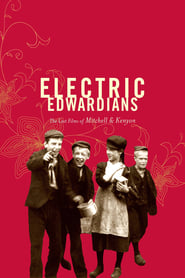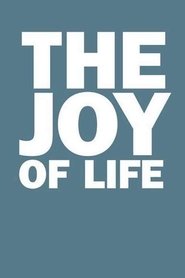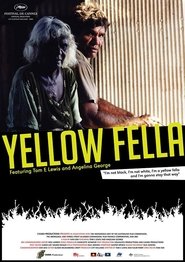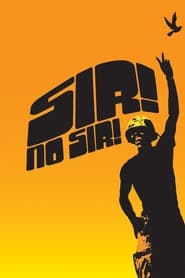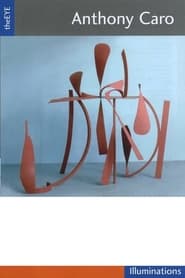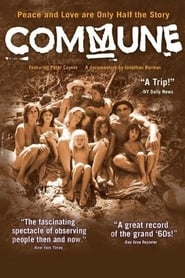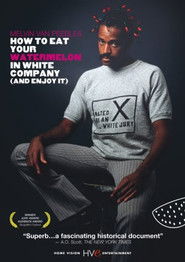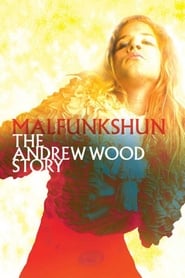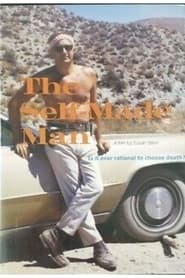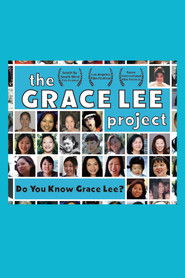New Documentary Movies on Kanopy - Page 252
-
The Thursday Club
2005
The Thursday Club
2005
In October 1967, documentary filmmaker George Paul Csicsery was beaten by police at an antiwar demonstration in Oakland, California. Thirty years later, he set out to find the policemen who were working that day. His only clue-a startling news photograph of himself begin clubbed by stern-faced cops. Take a trip back to America's turbulent 1960s as Csicsery visits a group of retired Oakland, California, policemen, who recall their days battling antiwar demonstrators and Black Panthers. -
Electric Edwardians - The Films Of Mitchell And Kenyon
2005
Archive footage, recently discovered, shot by the Edwardian documentary film-makers Sagar Mitchell and James Kenyon. Selected from a total of 28 hours of material, this compilation is grouped into five sections: 'Youth and Education'; 'The Anglo-Boer War'; 'Workers'; 'High Days and Holidays' and 'People and Places'. It includes footage of ordinary people going about their everyday business, from the factory gates to football matches, and is set to a specially commisioned score by the Shieffield-based duo In the Nursery. -
The Joy of Life
2005
The Joy of Life
2005
star 4.6A blending of documentary and experimental narrative strategies, combining stunning 16mm landscape cinematography with a bold, lyrical voice-over to share two San Francisco stories: the history of the Golden Gate Bridge as “suicide landmark,” and the story of a butch dyke in San Francisco searching for love and self-discovery. The Joy of Life is a film about landscapes, both physical and emotional. -
Yellow Fella
2005
Yellow Fella
2005
star 7In 1978, Tom Lewis appeared in the Australian feature film, The Chant of Jimmie Blacksmith. The life of the character he played was hauntingly close to his own, a young, restless man of mixed heritage, struggling for a foothold on the edge of two cultures. Tom's mother is a traditional Indigenous woman of southern Arnhem Land, his father a Welsh stockman who he never really knew. Yellow Fella is a journey across the land and into Tom's past, as he attempts to find the resting place of his father and to finally confront the truth of his most inner feelings of love and identity. -
Sir! No Sir!
2005
Sir! No Sir!
2005
star 6.7Sir! No Sir! is a documentary film about the anti-war movement within the ranks of the United States Military during the Vietnam War. It consists in part of interviews with Vietnam veterans explaining the reasons they protested the war or even defected. The film tells the story of how, from the very start of the war, there was resentment within the ranks over the difference between the conflict in Vietnam and the "good wars" that their fathers had fought. Over time, it became apparent that so many were opposed to the war that they could speak of a movement. -
Land Mines: A Love Story
2005
Habiba and Shah who, because of the wars fought in Afghanistan over the past 25 years, have experienced immense suffering, but who have survived to show how it is possible to be brave and moral in this world of sanctioned violence and lies. Shah, a former Mujaheddin soldier and land mine victim, works as a cobbler on the pavements of the ruined city of Kabul. One day, he noticed a pretty Tajik girl who had only one leg, and he began to court her. Amidst the chaos and violence, and despite all the obstacles of tradition and religion, Shah and Habiba were able to marry. -
theEYE: Anthony Caro
2005
theEYE: Anthony Caro
2005
In the early 1960s Anthony Caro led a revolution in sculpture in Britain. His abstract steel constructions, often painted in bold colours, forged a new and internationally influential sculptural language. In the years since his fertile and diverse practice has consistently challenged and extended what sculpture is, and what it might be. At the age of 80, Anthony Caro remains intensely active, working each day in his studio and overseeing every detail of an extensive retrospective at Tate. Preparations for the show are featured in this profile, along with many of his major works, filmed in Britain, Germany and the United States. -
The Peacekeepers
2005
The Peacekeepers
2005
star 10With unprecedented access to the UN Department of Peacekeeping, The Peacekeepers provides an intimate and dramatic portrait of the struggle to save "a failed state" The film follows the determined and often desperate maneuvers to avert another Rwandan disaster, this time in the Democratic Republic of Congo (the DRC). Focusing on the UN mission, the film cuts back and forth between the UN headquarters in New York and events on the ground in the DRC. We are with the peacekeepers in the "Crisis Room" as they balance the risk of loss of life on the ground with the enormous sums of money required from uncertain donor countries. We are with UN troops as the northeast Congo erupts and the future of the DRC, if not all of central Africa, hangs in the balance. In the background, but often impinging on peacekeeping decisions, are the painful memory of Rwanda, the worsening crisis in Iraq, global terrorism, and American hegemony in world affairs. -
Gay Sex in the 70s
2005
Gay Sex in the 70s
2005
star 6A chronicle of gay culture in New York during the post-Stonewall, pre-AIDs era. Thirteen men and one woman look back at gay life and sex in Manhattan and Fire Island - from Stonewall (June, 1969) to the first reporting on AIDS (June, 1981). They describe the rapid move from repression to celebration, from the removal of shame to joy, the on-going search for "someone," the freedom before AIDS, the friendships, and brotherhood. -
Street Fight
2005
Street Fight
2005
star 7This documentary follows the 2002 mayoral campaign in Newark, New Jersey, in which a City Councilman, Cory Booker, attempted to unseat longtime mayor Sharpe James. -
Enron: The Smartest Guys in the Room
2005
star 7.1A documentary about the Enron corporation, its faulty and corrupt business practices, and how they led to its fall. -
Phantom Limb
2005
Phantom Limb
2005
star 6.9The death of my seven-year-old brother when I was nine remains a painful and haunting memory. My parents did not know how to cope with the loss of their child and the entire family experienced indescribable pain. Phantom Limb uses this personal story as a point of departure. Whether it is a loss through death or divorce, the stages of grieving are the same. Individuals often go through denial, anger, bargaining, depression and, ultimately, some kind of acceptance, in order to heal. The film is loosely structured according to these stages. Interspersed throughout this poetic documentary are interviews with a cemetery owner, a phantom limb patient and an author of a book about evidence for life after death. Phantom Limb reminds viewers that while grief is painful and isolating, it is a reminder to each of us that life is impermanent. - Jay Rosenblatt -
Commune
2005
Commune
2005
star 5.6In 1968, Elsa and Richard Marley founded an alternative-living community, named Black Bear, in the remote Northern California wilderness with the motto "Free Land for Free People." This film tells the story of that intended utopia. Through archival footage and interviews with former residents, director Jonathan Berman explores the problems and realities of communal living and the evolution of a community that endured FBI harassment, cult leadership and more. -
How to Eat Your Watermelon in White Company (and Enjoy It)
2005
star 7Melvin Van Peebles was one of the first black directors to challenge the white establishment in his films, which include "Watermelon Man" and "Sweet Sweetback's Baadasssss Song." In this documentary, the life of Van Peebles is discussed, including his work not only in film, but also as a novelist, actor, musician, stock trader and even Air Force pilot. Interview subjects include Gil Scott-Heron, Spike Lee and Melvin's son and fellow filmmaker, Mario Van Peebles. -
Malfunkshun: The Andrew Wood Story
2005
Documentary on the life of late Mother Love Bone singer Andrew Wood. -
The Forest for the Trees
2005
Story of the fight to clear activist Judi Bari's name after her car was bombed and she was arrested as a terrorist by the Oakland police. Convinced the FBI conspired to discredit her and her organization, Judi decided to sue. -
The Self-Made Man
2005
The Self-Made Man
2005
Is it ever rational to choose death? On Independence Day at Stern Ranch, 77-year-old solar energy pioneer Bob Stern finds out he’s seriously ill – possibly dying. Meanwhile, an elderly in-law is dying on artificial life support. Bob decides to cheat that fate and take his own life. His family tries to stop him. Bob sets up a video camera. Daughter Susan Stern explores “rational suicide,” the “right-to-die” and the difficult end-of-life choices faced by an aging population. -
Light from the East
2005
Light from the East
2005
A troupe of American actors travels to the former Soviet Ukraine to participate in the first cultural exchange theatre project in history and find themselves trapped at the epicenter of a political revolution. -
The Grace Lee Project
2005
star 1Filmmaker Grace Lee leaves her Missouri home to travel the country and talk with an array of women who share her name. -
I Was a Teenage Feminist
2005
star 1.7Why is it that some young, independent, progressive women in today's society feel uncomfortable identifying with the F-word? Join filmmaker Therese Shechter as she takes a funny, moving and very personal journey into the heart of feminism. Armed with a video camera and an irreverent sense of humor, Shechter talks with feminist superstars, rowdy frat boys, liberated Cosmo girls and Radical Cheerleaders, all in her quest to find out whether feminism can still be a source of personal and political power.
 Netflix
Netflix
 Amazon Prime Video
Amazon Prime Video
 Apple iTunes
Apple iTunes
 Apple TV Plus
Apple TV Plus
 Disney Plus
Disney Plus
 Google Play Movies
Google Play Movies
 Paramount Plus
Paramount Plus
 Hulu
Hulu
 HBO Max
HBO Max
 YouTube
YouTube
 fuboTV
fuboTV
 Peacock
Peacock
 Peacock Premium
Peacock Premium
 Amazon Video
Amazon Video
 The Roku Channel
The Roku Channel
 AMC+
AMC+
 Kocowa
Kocowa
 Hoopla
Hoopla
 The CW
The CW
 Vudu
Vudu
 Starz
Starz
 Showtime
Showtime
 PBS
PBS
 Pantaflix
Pantaflix
 FXNow
FXNow
 Tubi TV
Tubi TV
 Kanopy
Kanopy
 Comedy Central
Comedy Central
 Crunchyroll
Crunchyroll
 Microsoft Store
Microsoft Store
 Redbox
Redbox
 Sun Nxt
Sun Nxt
 ABC
ABC
 DIRECTV
DIRECTV
 Crackle
Crackle
 Fandor
Fandor
 Plex
Plex

